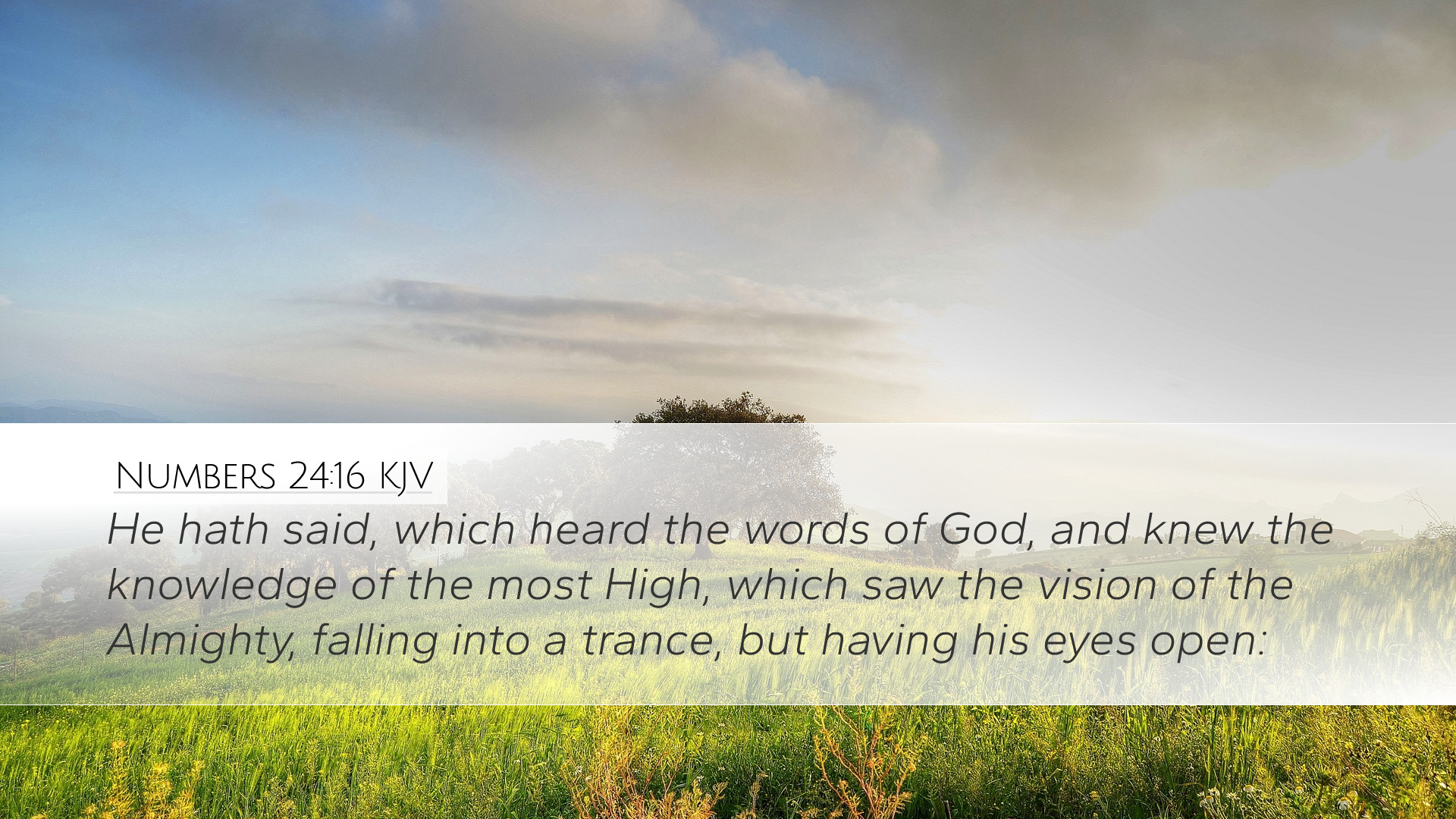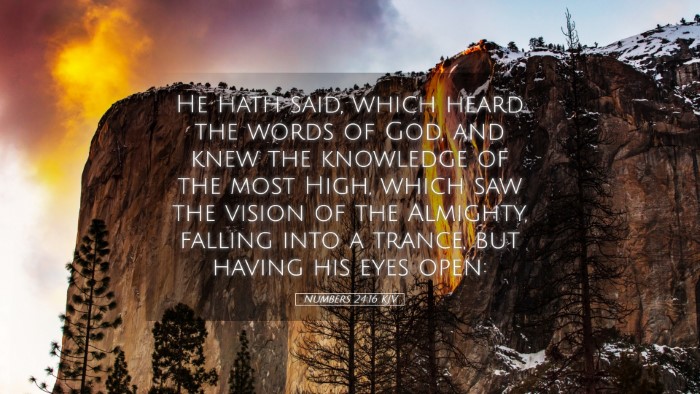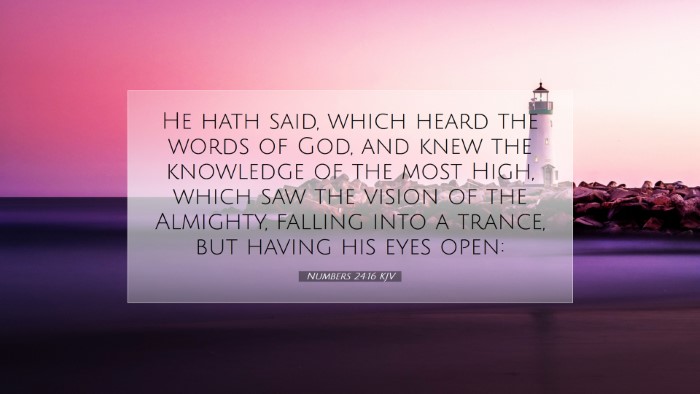Bible Commentary on Numbers 24:16
Verse Context: Numbers 24:16 states, "He hath said, which heard the words of God, and knew the knowledge of the most High, which saw the vision of the Almighty, falling into a trance, but having his eyes open." This verse is part of Balaam’s fourth oracle and encapsulates the divine insight into God’s overarching plans.
Overview of Numbers 24
In this chapter, we witness Balaam, a non-Israelite prophet, called upon to curse Israel. However, God intervenes and turns Balaam's intent to bless rather than curse. The verses leading to 24:16 provide a narrative of God's sovereignty and His purpose for Israel through Balaam’s prophetic utterances.
Commentary Insights
Understanding the Prophet's Role
Matthew Henry’s Commentary: Henry emphasizes Balaam's unique position as a character who is both a prophet and a man entangled in worldly desires. He notes that God can use even those who are not part of His covenant community to bring forth His will. Here, we see that Balaam has a profound awareness of the knowledge of the Most High, yet his heart is still conflicted.
Balaam’s Vision and Revelation
Albert Barnes’ Notes: Barnes elaborates on the process of revelation in this verse. He suggests that the phrase "which saw the vision of the Almighty" indicates a clear divine revelation rather than a mere human prediction. Balaam’s experience of 'falling into a trance, but having his eyes open' signifies an extraordinary moment of divine clarity where he perceives spiritual truths beyond human understanding.
The Nature of Divine Knowledge
Adam Clarke’s Commentary: Clarke delves into the nature of knowledge and insight possessed by Balaam. He points out the dichotomy of Balaam knowing the knowledge of God yet acting contrary to that knowledge. This highlights a recurring theme in Scripture where knowledge of God does not always translate into obedience or righteousness. Clarke suggests this serves as a cautionary tale for believers today about the relationship between knowledge and the application of that knowledge in one’s life.
Spiritual and Theological Implications
This passage holds significant implications for the understanding of prophecy and divine revelation in the Scriptures. Here are several key themes:
- The Sovereignty of God: The fact that God can manipulate the words of a prophet to fulfill His divine purpose underscores His sovereignty. It is a sobering reminder that God’s plans prevail regardless of human intent.
- The Nature of Revelation: The vision seen by Balaam while in a trance but with 'open eyes' speaks to the accessibility of divine truth. This indicates that God communicates His truth in ways that are beyond ordinary human perception.
- Warning Against Compromise: Balaam’s situation serves as a warning against the perils of seeking personal gain over God’s purpose. Despite receiving profound insight, Balaam’s eventual choices illustrate the tragedy of knowledge without obedience.
- God's Method of Communication: The manner in which God speaks through visions and trances also opens discussions about the ways God communicates across Scriptural history, emphasizing the consistency of divine revelation across both the Old and New Testaments.
Applications for Today
The insights from Numbers 24:16 should compel modern readers to examine their own heart's disposition in relation to the knowledge of God:
- Are we receptive to the truths God reveals to us, willing to act accordingly?
- Do we recognize the sovereignty of God in our lives and the lives of others?
- What lessons can be drawn from Balaam's life regarding the balance between knowledge and ethical living?
- How do we discern the voice of God amidst competing worldly desires and ambitions?
Conclusion
Numbers 24:16 serves as a pivotal verse that encapsulates the intersection of divine authority, prophetic insight, and human responsibility. It challenges readers to not only seek knowledge but to embody it in obedience. As we reflect on this verse, may we be inspired to pursue a deeper relationship with God, allowing His truth to transform our lives.


